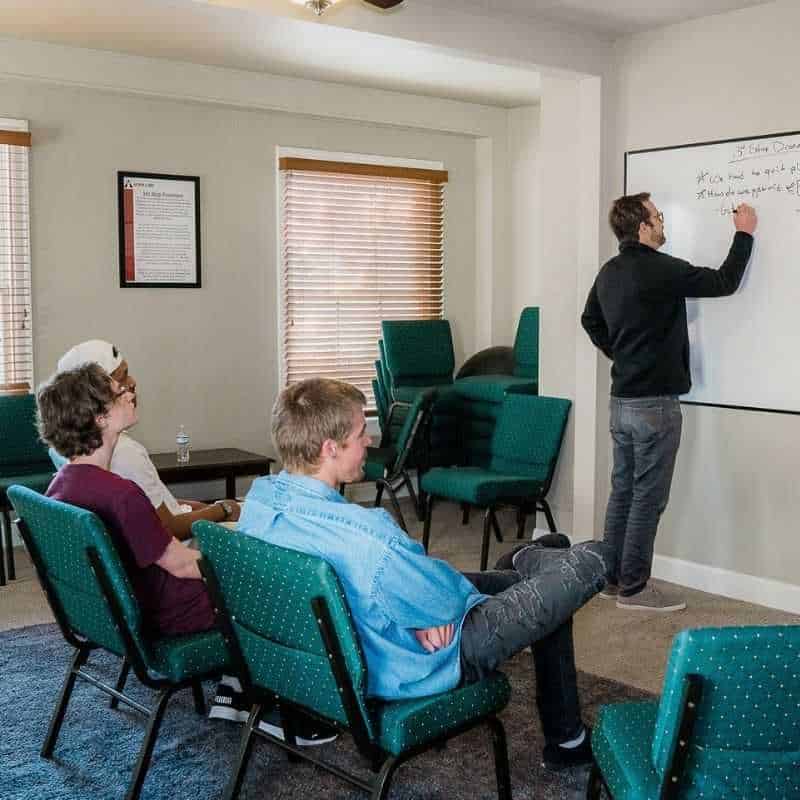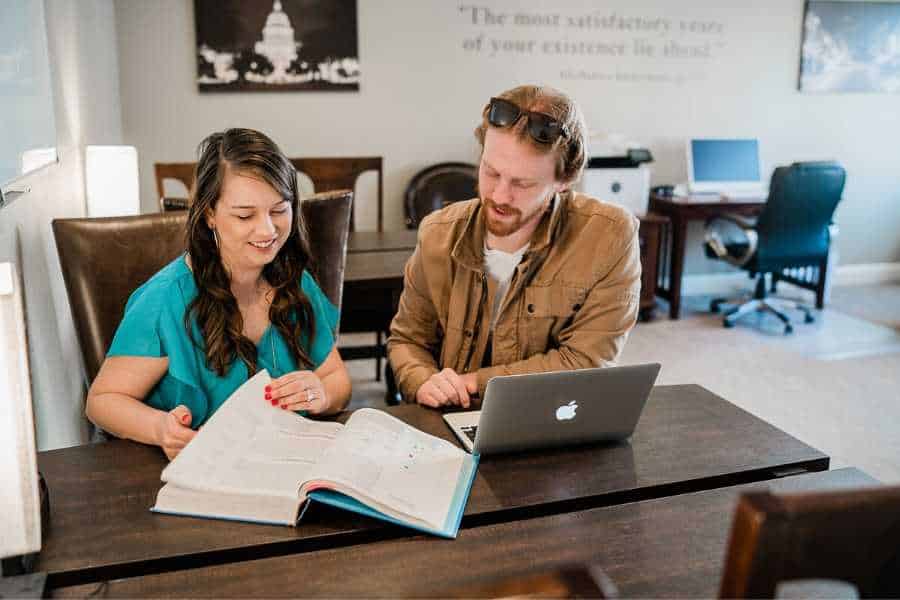Life Skills Development
Life Skills Development is an essential component of the Alpha 180 program.
Building competence and confidence is essential to feeling successful as a young adult in recovery. Whether pursuing a vocational or academic path, we walk alongside each resident to establish and achieve their goals.
Many young men in recovery become overwhelmed with the prospect of navigating all of life’s responsibilities. Our Life Skills Development staff work one-on-one with each resident.
If you are just getting started looking for your first job or first job in some time, we can help you build a resume that will stand out to employers. We can work with you to help you maintain your recovery while learning how to work sober.
If you have a career already in a specific field, we can support you as you move towards working again and maintain your recovery in a supportive environment.
For those seeking to pursue academics, the Texas capital is home to a number of major universities. Blocks from the Alpha 180 doorstep, the University of Texas at Austin is a focal point of the city and was rated in the top fifteen public universities in the nation in 2020.
With eight state-of-the-art campuses, many Alpha 180 participants attend Austin Community College. There are additional schooling options including St. Edward’s University, Texas State University, or attending your home university virtually. If starting or going back to school is what your intentions are, Austin, Texas is a great place!
Our case manager will also work with you to figure out what other life skills you could benefit from support with. From budgeting, time management, and even things like filing your taxes, your personal development plan will be specific to your needs as a resident of Alpha 180.

What does our Life Skills Development team do for you?
Navigating early recovery as a young adult can present many challenges. From learning difficulties that may have been previously unseen, to life skills that were never learned before.
Upon entering Alpha 180’s Transitional Living Program, each resident meets with a case manager. Our Case Manager is here to guide each resident’s journey back into school or work while maintaining their sobriety.

Employment
(resume writing, interview skills, job sourcing)

Academics
(assignment completion, study skills, note-taking methods)

Executive Functioning

Life Skills
(budgeting, appointments, personal care, physical health)

Emotional Regulation
(stress management, school anxiety)

Learning Styles
(process organization, academic accommodations, skill-building)

Learning Differences
(process, social or learning disorder support)

Executive Functioning
(scheduling, time management, prioritization)

Life Skills
(budgeting, appointments, personal care, physical health)

Emotional Regulation
(stress management, school anxiety)

Academics
(assignment completion, study skills, note-taking methods)

Learning Styles
(process organization, academic accommodations, skill-building)

Employment
(resume writing, interview skills, job sourcing)

Learning Differences
(process, social or learning disorder support)
You’re not in this alone!
Being a part of a community of peers with like-minded goals is vital to recovery. This means you provide support to each other by establishing true friendships built on similar interests. We have found that the peer community is one of the most effective ways for a person to feel supported, as they have others around them with similar mindsets looking to achieve similar goals.

